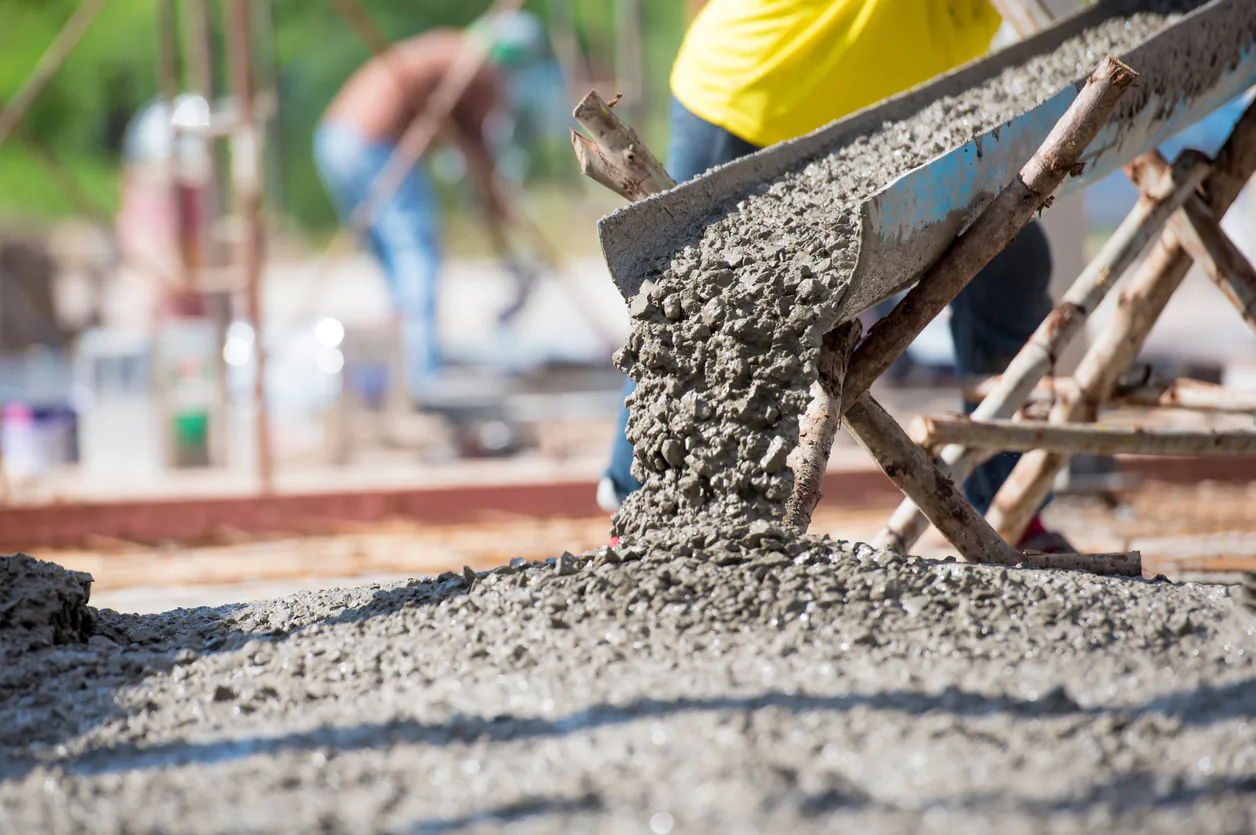When it comes to construction projects, choosing the right cement and concrete products is crucial for the success and durability of your build. With so many options available, it’s essential to understand the differences between cement and concrete, as well as the various types of products available. In this article, we’ll discuss the key differences between cement and concrete, provide examples of concrete products, and answer some commonly asked questions to help you make informed decisions for your construction projects.
What is the Difference Between Concrete and Cement?
Although the terms are often used interchangeably, cement and concrete are not the same. Cement is a powdery substance made from limestone, clay, and other minerals that acts as a binding agent when mixed with water. On the other hand, concrete is a mixture of cement, sand, gravel, and water that hardens into a durable building material. In short, cement is an ingredient in concrete.
Examples of Concrete Products
There is a wide range of concrete products available for construction projects, including:
- Architectural concrete – used for decorative purposes and available in various colors and finishes.
- Concrete blocks – used for building walls and foundations.
- Concrete pavers – used for driveways, walkways, and patios.
- Concrete pipes – used for drainage and sewage systems.
- Concrete roof tiles – a durable and energy-efficient roofing option.
Is Quikrete a Concrete or Cement?
Quikrete is a brand that offers a variety of cement and concrete products. They have products such as fast-setting concrete mix, mortar mix, and cement mix, to name a few. It’s essential to read the product description carefully to ensure you choose the right Quikrete product for your project.
What Are the 3 Concrete Items?
The three main components of concrete are:
- Cement
- Aggregates (sand, gravel, or crushed stone)
- Water
These ingredients are combined in specific proportions to create concrete with the desired strength and durability.
What’s Stronger: Concrete or Cement?
Concrete is stronger than cement because it is a composite material made up of cement, aggregates, and water. The aggregates in concrete provide additional strength and stability, making it more durable and resistant to cracking than cement alone.
Should I Buy Concrete or Cement?
The choice between concrete and cement depends on your specific construction project. For structural elements like foundations, walls, and floors, concrete is usually the better option due to its strength and durability. However, cement can be used as a binding agent for other materials or as a base for certain types of flooring.
Are Garage Floors Concrete or Cement?
Garage floors are typically made of concrete, as it provides a strong and durable surface that can withstand the weight of vehicles and resist damage from oil spills, chemicals, and moisture. Concrete is also relatively easy to maintain and can be finished in various ways to create a visually appealing surface.
Why Do People Say Cement Instead of Concrete?
The confusion between cement and concrete likely stems from the fact that cement is a primary ingredient in concrete. People often use the terms interchangeably, even though they refer to different materials. To clarify, cement is a binding agent used in the production of concrete, while concrete is the finished product that results from combining cement, aggregates, and water.
Are Sidewalks Cement or Concrete?
Sidewalks are typically made of concrete, as it offers a strong, durable surface that can withstand foot traffic, weather conditions, and the natural expansion and contraction caused by temperature fluctuations. Concrete is also a versatile material that can be finished in various ways, such as textured, stamped, or colored, to create visually appealing and slip-resistant surfaces.
Can I Pour Cement on a Concrete Surface?
Pouring cement directly onto an existing concrete surface is not generally recommended, as it may not bond properly and could result in a weak, unstable surface. Instead, it’s better to use a concrete overlay or resurfacing product designed specifically for use over existing concrete. These products typically contain a blend of cement, sand, and other additives that ensure proper bonding and a durable, long-lasting finish.
In conclusion, understanding the differences between cement and concrete, as well as the various products available, is essential when choosing materials for your construction projects. By selecting the right cement and concrete products, you can ensure a strong, durable, and visually appealing result that meets the specific needs of your project.
Additional Factors to Consider When Choosing Cement and Concrete Products
To further assist you in choosing the right cement and concrete products for your construction projects, let’s discuss some additional factors to consider:
Project Requirements
Before selecting cement and concrete products, it’s essential to understand your project’s specific requirements, including load-bearing capacity, durability, and aesthetic appeal. For example, if you’re constructing a driveway, you’ll need to choose concrete products with a high compressive strength to withstand the weight of vehicles. Similarly, for decorative projects, architectural concrete or colored concrete may be more appropriate.
Environmental Factors
Environmental factors, such as climate and soil conditions, can also impact the choice of cement and concrete products. In areas with extreme temperatures or freeze-thaw cycles, it’s crucial to choose concrete products with additives that improve resistance to cracking and scaling. Additionally, in regions with expansive soils, selecting a concrete mix with reduced shrinkage properties can help prevent structural damage.
Product Availability
When choosing cement and concrete products, it’s essential to consider the availability of materials in your region. Local suppliers can provide valuable information about the most suitable products for your project, taking into account local conditions and regulations. In addition, sourcing materials locally can help reduce transportation costs and support the local economy.
Cost
The cost of cement and concrete products can vary significantly depending on the type, quality, and quantity required. Before purchasing, research different suppliers and obtain quotes to compare prices and ensure you’re getting the best value for your money. Remember, it’s essential to balance cost considerations with the quality and performance of the products to ensure a successful, long-lasting construction project.
Proper Installation Techniques
Choosing the right cement and concrete products is only part of the equation; proper installation techniques are equally critical to ensure a successful outcome. For example, when working with concrete, it’s essential to follow the correct mixing, pouring, and curing procedures. This includes accurately measuring and combining the concrete ingredients, ensuring the concrete is poured and consolidated correctly, and allowing the concrete to cure at the appropriate temperature and humidity levels.
Additionally, working with experienced professionals can significantly improve the quality and durability of your construction project. Skilled contractors are familiar with the best practices for handling and installing cement and concrete products, helping to ensure a successful result that meets or exceeds your expectations.
In conclusion, taking the time to carefully consider various factors, such as project requirements, environmental conditions, product availability, cost, and proper installation techniques, can greatly impact the success of your construction project. By selecting the most suitable cement and concrete products and working with experienced professionals, you can ensure a strong, durable, and visually appealing result that stands the test of time.



